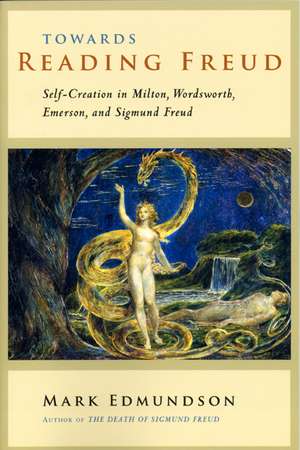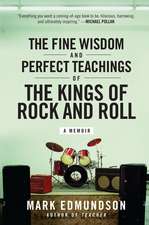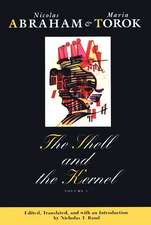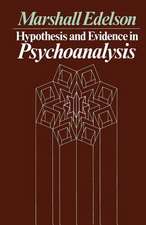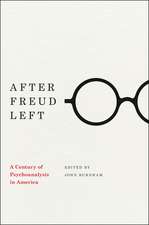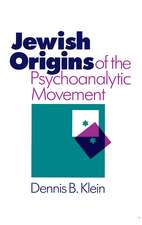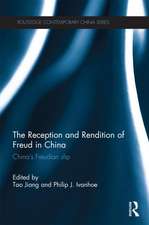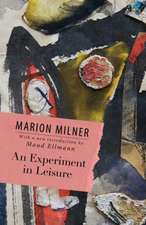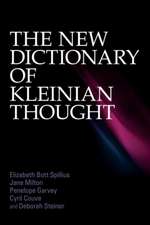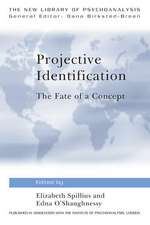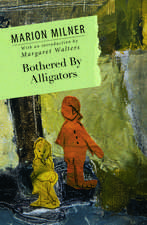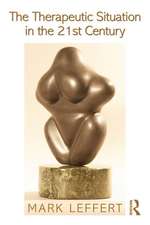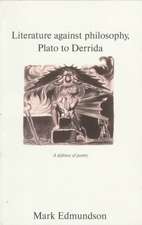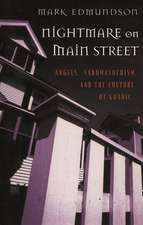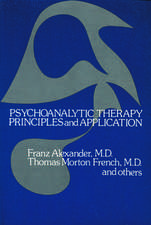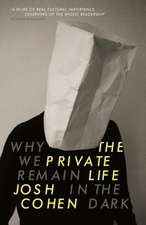Towards Reading Freud: Self-Creation in Milton, Wordsworth, Emerson, and Sigmund Freud
Autor Mark Edmundsonen Limba Engleză Paperback – 8 noi 2007
When most critics were using Freudian theories to study literature, Mark Edmundson read Freud’s writings as literature alongside the works of poets grappling with the heady issues of desire, narcissism, and grief. Towards Reading Freud weighs the psychoanalyst’s therapeutic directives against his more visionary impulses in a magisterial comparative study of such writers as Shakespeare, Wordsworth, Emerson, and Keats. Cross-fertilizing psychological doctrine with the literary canon, this richly informed volume forges a new understanding of Freud’s writings on the self.
“Marvelous. . . . Edmundson’s book offers an extraordinary challenge both to practicing analysts and to a scholarly community which all too uncomplainingly inhabits and reinforces the Freudian paradigm of interpretation. Edmundson reinvents an adventurous and dissident Freud as an antidote to . . . weary psychoanalytic commonplaces.”—Malcolm Bowie, Raritan
“This book takes a distinguished place in the ongoing effort to recontextualize Freud by stressing the literary, rather than the scientific roots and character of his theory.”—Virginia Quarterly Review
“Marvelous. . . . Edmundson’s book offers an extraordinary challenge both to practicing analysts and to a scholarly community which all too uncomplainingly inhabits and reinforces the Freudian paradigm of interpretation. Edmundson reinvents an adventurous and dissident Freud as an antidote to . . . weary psychoanalytic commonplaces.”—Malcolm Bowie, Raritan
“This book takes a distinguished place in the ongoing effort to recontextualize Freud by stressing the literary, rather than the scientific roots and character of his theory.”—Virginia Quarterly Review
Preț: 216.62 lei
Nou
Puncte Express: 325
Preț estimativ în valută:
41.45€ • 43.39$ • 34.50£
41.45€ • 43.39$ • 34.50£
Carte tipărită la comandă
Livrare economică 31 martie-14 aprilie
Preluare comenzi: 021 569.72.76
Specificații
ISBN-13: 9780226184616
ISBN-10: 0226184617
Pagini: 184
Dimensiuni: 152 x 229 x 10 mm
Greutate: 0.24 kg
Editura: University of Chicago Press
Colecția University of Chicago Press
ISBN-10: 0226184617
Pagini: 184
Dimensiuni: 152 x 229 x 10 mm
Greutate: 0.24 kg
Editura: University of Chicago Press
Colecția University of Chicago Press
Notă biografică
Mark Edmundson is the Daniels Family Distinguished Teaching Professor of Romantic Poetry and Literary Theory at the University of Virginia. He is the author of numerous books, including The Death of Freud and Why Read?.
Cuprins
Preface
Introduction
Reading Freud
Chapter One
Freud's First Self-Genesis: "The Interpretation of Dreams," 1900
Chapter Two
New Thresholds: "On Narcissism, An Introduction," 1914
Chapter Three
Therapeutic Exchanges: Papers on Psychoanalytic Technique, 1911-1915
Chapter Four
The Work of Melancholia: "Mourning and Melancholia," 1917
Conclusion
Freud in the Future
Index
Introduction
Reading Freud
Chapter One
Freud's First Self-Genesis: "The Interpretation of Dreams," 1900
Chapter Two
New Thresholds: "On Narcissism, An Introduction," 1914
Chapter Three
Therapeutic Exchanges: Papers on Psychoanalytic Technique, 1911-1915
Chapter Four
The Work of Melancholia: "Mourning and Melancholia," 1917
Conclusion
Freud in the Future
Index
Recenzii
“Marvelous. . . . Edmundson’s book offers an extraordinary challenge both to practicing analysts and to a scholarly community which all too uncomplainingly inhabits and reinforces the Freudian paradigm of interpretation. Edmundson reinvents an adventurous and dissident Freud as an antidote to . . . weary psychoanalytic commonplaces.”
"To deflate exaggerated praise on dustcovers is a critic's pleasure. This time, however, I join the praise."
"Practising analysts would do well to heed this book's warning against becoming the Super-egoic subject who is not only supposed to know but comes to believe that he does know; literary critics can find here a brilliant model of how to read literary texts side by side with psychoanalytic theory. . . Edmundson's book shows how literature can, and psychoanalysis should, help rein in one another's desire to know."
